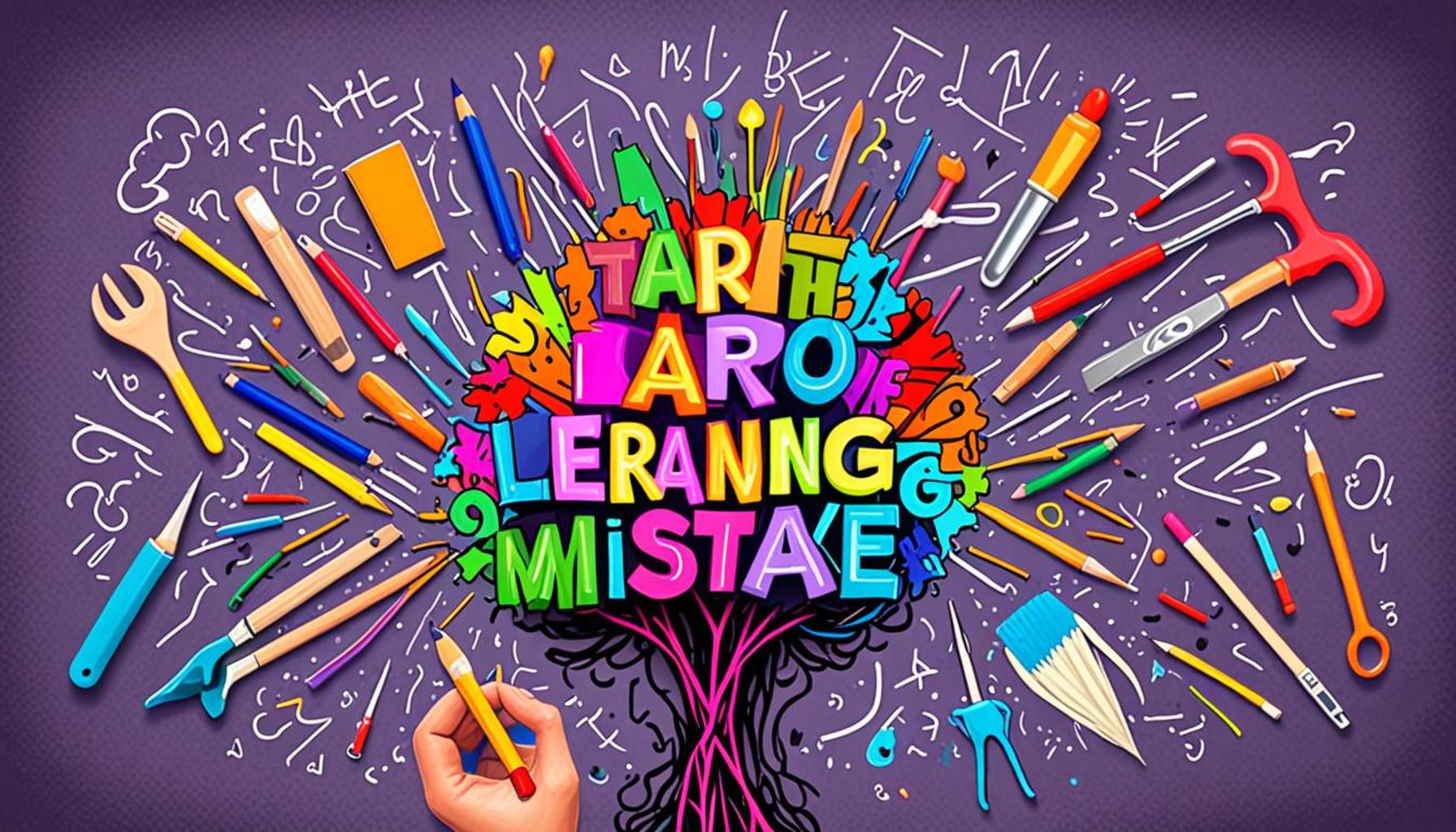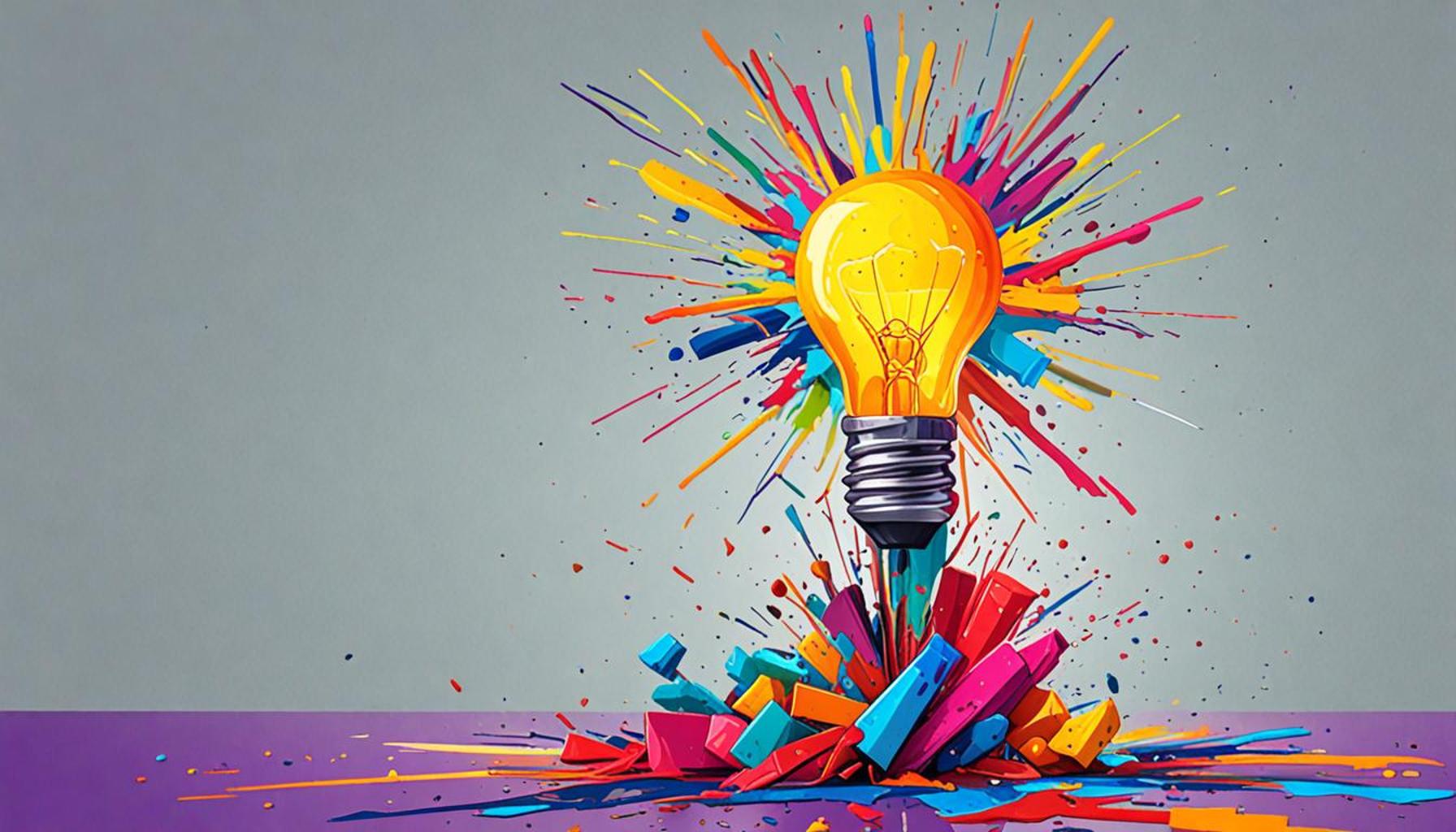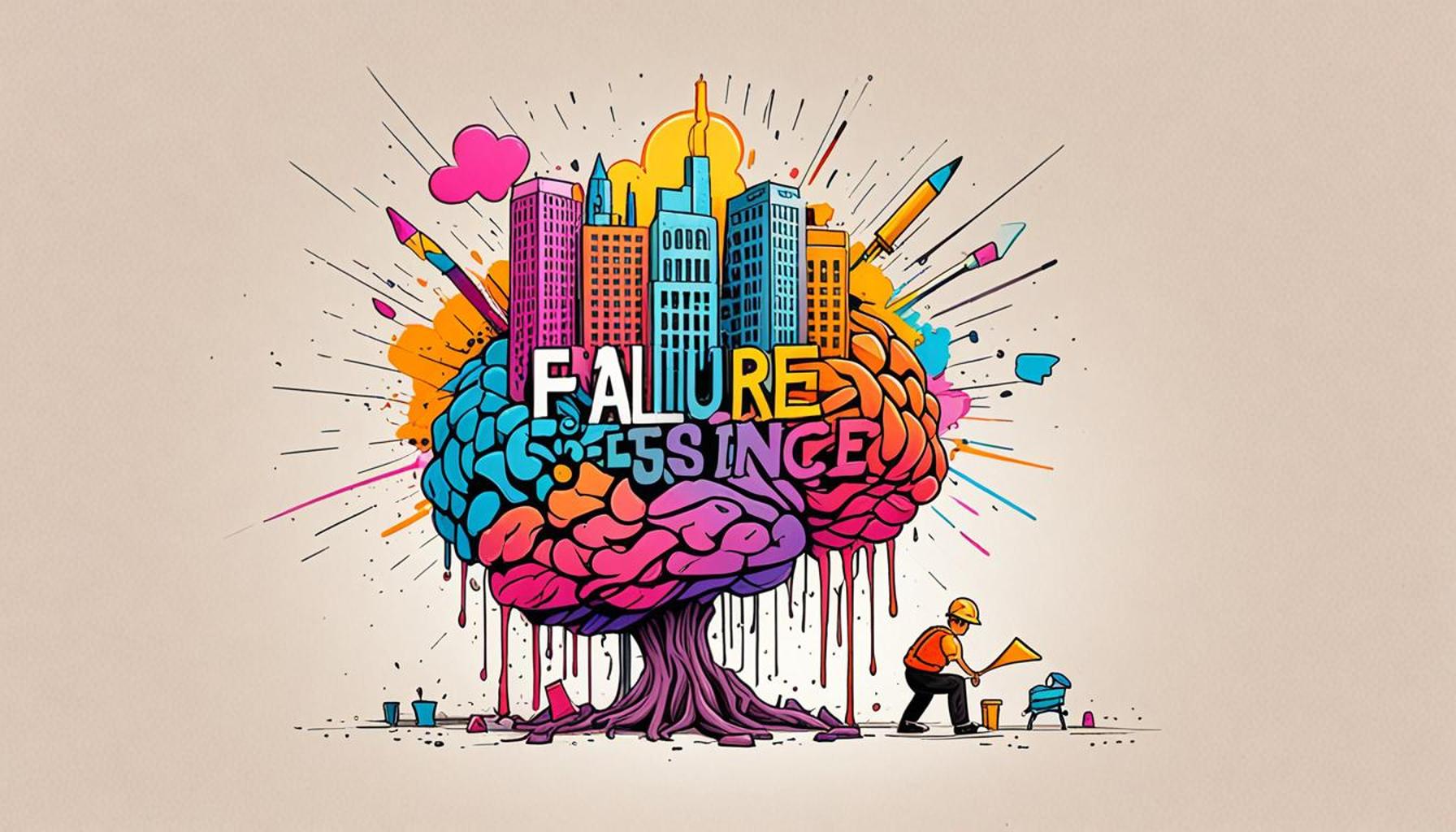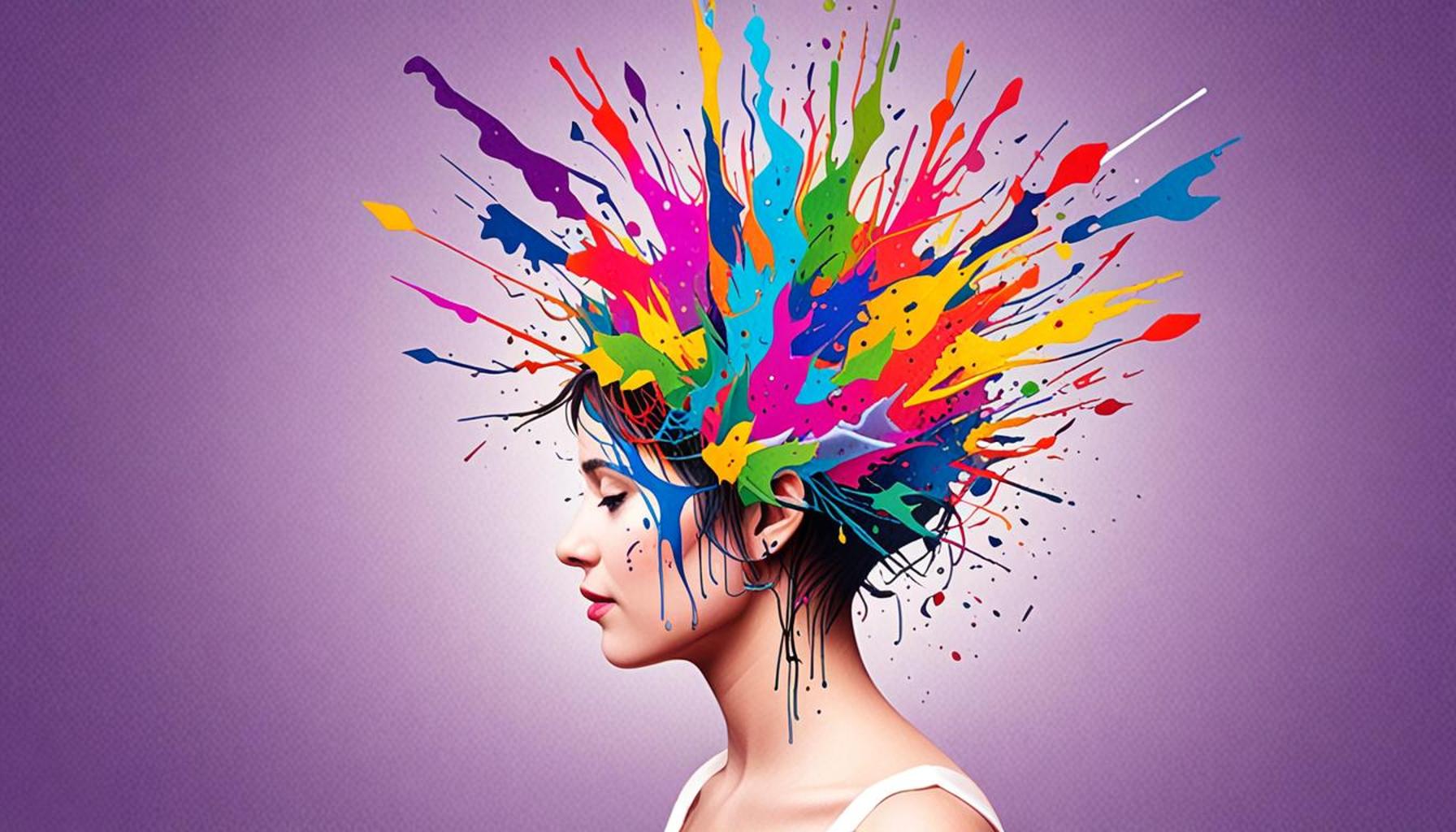The Art of Learning from Mistakes: Practical Tools for Developing a Growth Mindset

The Value of Mistakes in Personal Growth
Mistakes are often cast in a negative light, seen as a clear pathway to failure. However, viewed through a different lens, they emerge as invaluable teachers. In an increasingly competitive world that places immense value on success, the capacity to learn from one’s errors becomes an essential trait for both personal and professional growth. This recognizing and embracing of setbacks is fundamentally aligned with the principles of a growth mindset.
In Nigeria, a nation rich in culture yet grappling with unique challenges, the ability to turn failures into learning experiences can lead to remarkable outcomes. This ability not only fosters resilience but also nurtures innovation. Let’s delve into a few key lessons to extract from mistakes:
- Resilience: Learning to bounce back from setbacks builds character. For instance, a Nigerian entrepreneur who fails to secure funding for their startup can use that experience to refine their business model and pitching techniques, ultimately achieving success in future ventures.
- Adaptability: The willingness to change approaches can open doors to new opportunities. A student who struggles with traditional learning methods may discover their own unique study technique that matches their learning style, often leading to improved academic performance.
- Creativity: Mistakes can inspire innovative solutions. For example, in the face of limited resources, a business might pivot to create a new product from waste materials, ultimately finding a niche market in sustainability.
Embracing a growth mindset can dramatically affect various aspects of life, including education, business, and interpersonal relationships. By consistently reframing mistakes as growth opportunities, individuals can:
- Enhance their problem-solving skills, becoming adept at analyzing situations and compensating for errors.
- Improve decision-making processes, as they learn to weigh the consequences of actions based on prior experiences.
- Foster a supportive community focused on growth, encouraging others to share their experiences and lessons learned.
As we continue our exploration, we will identify practical tools that aid in cultivating this growth mindset while effectively leveraging mistakes. Prepare to embark on a journey of transforming setbacks into setups for greater success. By doing so, individuals can unlock their full potential and contribute positively to their communities, inspiring resilience and creativity in the face of adversity.
RECOMMENDED: Check out this similar article
Transforming Setbacks into Stepping Stones
In a world that often prioritizes perfection, the notion of celebrating mistakes can feel revolutionary. Embracing this perspective requires more than just optimism; it calls for practical strategies that convert failures into opportunities for growth. By systematically analyzing mistakes, individuals can uncover rich insights, fueling a growth mindset critical for personal and professional development. Nigeria, a land of diverse potential, can benefit tremendously from adopting such an approach in its pursuit of excellence.
The process of learning from mistakes begins with self-reflection. Individuals must cultivate the habit of pausing after a setback to ask themselves probing questions: What went wrong? What could I have done differently? This practice of introspection not only clarifies the lessons embedded within failures but also helps identify patterns that may lead to future mistakes. For instance, an upcoming Nigerian student who performs poorly on a math exam may benefit from dissecting their study habits, realizing that they needed to engage in more practice exercises rather than rote memorization.
To further solidify this learning process, it is important to implement the following key strategies:
- Document Your Journey: Keeping a journal dedicated to tracking mistakes and the lessons learned can illuminate recurring themes in one’s experiences. Writing down not just the failure, but also the emotional response and subsequent actions taken, creates a roadmap for future encounters.
- Seek Feedback: Engaging with mentors or peers can provide an external perspective on one’s setbacks. This feedback loops not only enriches the learning experience but also fosters a culture of open communication and support. For example, a budding entrepreneur can gain insights on their business approach by consulting with more experienced professionals or participating in local business forums.
- Set Incremental Goals: Breaking larger tasks into smaller, achievable goals can mitigate the fear of failure. Each completed small step builds confidence, making setbacks seem less daunting. In Nigerian educational environments, students can focus on mastering one topic at a time, rather than overwhelming themselves with the entire syllabus.
As we refine our ability to learn from mistakes, it is essential to cultivate a community that celebrates growth over perfection. Sharing experiences of failure and subsequent recovery fosters a safe space for learning and improvement. This collaborative spirit can be particularly influential in Nigeria, where the collective ethos can propel individuals toward mutual success.
In the quest for developing a growth mindset, it’s crucial to remember that every mistake brings with it a valuable lesson. By harnessing the power of these experiences through structured approaches like reflection, feedback, and goal-setting, individuals can navigate the complexities of life with resilience and creativity, paving the way for extraordinary achievements. Let’s explore more practical tools that transform failure into success as we continue this important conversation.
| Advantage | Description |
|---|---|
| Embracing Failure | Learning from mistakes turns failures into stepping stones for improvement. |
| Resilience Building | Fostering a growth mindset enhances mental toughness and the ability to overcome future challenges. |
| Enhanced Creativity | Mistakes encourage innovative thinking, as they require out-of-the-box solutions to overcome obstacles. |
| Skill Development | Each mistake offers a chance to refine skills and competencies, making individuals more adept. |
| Feedback Utilization | Analyzing mistakes provides valuable feedback that can lead to significant growth. |
Understanding and developing a growth mindset involves recognizing that mistakes are not just setbacks but are instead opportunities for profound learning. Adopting these practices can lead to a life rich in experience and personal development.
CHECK OUT: Click here to explore more
Navigating the Path from Error to Excellence
Recognizing that mistakes are integral to the learning process is the first step toward fostering a growth mindset. However, it is equally important to integrate adaptable strategies that will allow individuals to navigate setbacks with grace and dexterity. This adaptability is particularly relevant in Nigeria, where the diverse socio-economic challenges may lead to missteps, yet also present unique opportunities for innovation and problem-solving.
One key tool in learning from mistakes is the ability to maintain a positive attitude during challenging times. Resilience is not merely about bouncing back but involves bouncing forward, using failures as platforms for future successes. For example, in the Nigerian agricultural sector—an industry crucial for both food security and employment—farmers can encounter unpredictable weather conditions. Rather than viewing crop failures as devastating losses, they can analyze what went wrong, explore alternative planting techniques, or invest in technology like moisture sensors. This proactive approach promotes a cycle of continuous improvement.
Another effective strategy involves employing the 5 Whys technique. This method encourages individuals to ask “why” repeatedly—typically about five times—to drill down into the root causes of a mistake. In a Nigerian corporate setting, for instance, a company launching a product that underperforms can use this technique to unearth underlying issues such as misjudged market demand, inadequate marketing strategies, or production flaws. By identifying these root causes, companies can adjust their strategies effectively and avoid making the same mistakes in future endeavors, thus cultivating a culture of innovation grounded in learning.
Furthermore, leveraging storytelling as a means to share experiences can powerfully shift perspectives on failure. When successful individuals in Nigeria share their journeys of overcoming mistakes, it not only humanizes their success but also encourages others to view their challenges through the same lens. Workshops, seminars, and even social media platforms can serve as excellent avenues for sharing these narratives, creating a community where learning from mistakes becomes not a source of shame but a badge of honor.
A vital aspect of this journey toward harnessing a growth mindset is the role of accountability. Establishing support networks can provide the necessary encouragement and constructive criticism required to turn failures into learning opportunities. For instance, mentoring programs, commonly practiced in Nigerian universities, allow students to connect with alumni who can share their own experiences with mistakes—thereby reinforcing that every misstep offers valuable lessons. This collaborative mentorship fosters an ecosystem where learning, feedback, and improvement can thrive collectively.
Lastly, integrating mindfulness practices into daily life can enhance awareness of mistakes as they arise. Techniques such as meditation and focused breathing allow individuals to remain present, facilitating a non-judgmental approach to failures. By cultivating this awareness, mistakes are no longer seen as catastrophic; rather, they become indicators of areas for development. A Nigerian tech startup founder might practice mindfulness to respond calmly and constructively when faced with a product launch setback, channeling that energy into thoughtful problem-solving.
These practical tools promote a landscape where the power of learning from mistakes is fully realized. By adopting such practices, Nigerians can unlock their potential and contribute to a culture that values growth, creativity, and resilience. As we delve deeper into this conversation, the journey from error to excellence becomes clearer, illuminating pathways that everyone can traverse. Let’s continue exploring how the art of learning from mistakes can inspire transformative change.
SEE ALSO: Click here to read another article
Embracing a Future of Growth and Resilience
In conclusion, the journey of mastering the art of learning from mistakes is a powerful catalyst for personal and collective growth. As we have explored, the tools and strategies—ranging from fostering resilience to sharing narratives—are not just techniques but essential components of a thriving mindset. For the people of Nigeria, where challenges abound, embracing errors as stepping stones toward excellence can unlock unprecedented avenues for innovation and success.
Drawing on cultural values of community and mentorship, Nigerians can create vibrant ecosystems where sharing experiences becomes commonplace, thus diminishing the stigma attached to failure. By implementing techniques like the 5 Whys or integrating mindfulness practices, individuals and organizations alike can transform setbacks into valuable insights. Each mistake becomes a lesson, illuminating the path toward improvement and creativity.
The implications of nurturing a growth mindset extend beyond individual achievement; they resonate within families, communities, and industries, fostering a culture that celebrates learning and adaptability. As more Nigerians embrace this mindset, the potential to innovate and respond to socio-economic realities grows exponentially, leading to a brighter future filled with possibilities. Let us carry forward these insights, ensuring that mistakes are not merely endured but embraced as vital components of our learning journeys, paving the way for resilience, creativity, and unyielding progress.


